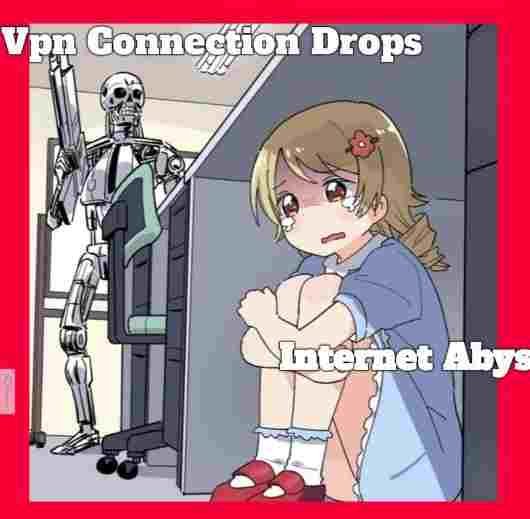With the rise in the digital age and the expansion of internet usage, the role of a Virtual Private Network (VPN) has grown significantly. Right from providing an additional layer of security to allowing users to enjoy the internet without geographical restrictions, VPNs have proved to be a game-changer. But as important as they are, their technical complexities often make understanding them a daunting task, especially for non-tech savvy individuals. Fear not, as this article will introduce you to the world of VPNs and how they interact with an exciting and popular cultural phenomenon – memes. Be it learning about the core aspects of VPNs, the various types, or even seeing how memes can be educational and impactful, the ride is sure to be an enlightening one.
Understanding VPN
VPN stands for virtual private network. It’s a service that protects your internet connection and privacy online by creating an encrypted tunnel for your data, masking your online actions. The fundamental principle of a VPN is to provide a secure connection between you and the internet, encrypting your data and obscuring your online identity.
Why Use VPN?
The core function of a VPN is to keep your internet activity private and secured. We live in a world where internet privacy is increasingly hard to maintain, especially with the rise of online threats and internet service providers or ISPs potentially sharing your browsing history. VPNs help combat this by hiding your online behavior, making it harder for others to track your activities or steal your data, by assigning you a different IP address, making it appear as if you’re browsing from a different location.
Uses of VPN
VPN services are commonly used for several reasons. They can mask your browsing activity on public Wi-Fi networks to keep you anonymous, effectively hiding you from any prying eyes. VPNs can also help you access region-restricted websites by making your IP address appear like you’re browsing from a different location.
VPN and Memes
Most interestingly, VPNs have become a trendy subject in online meme culture. VPN memes essentially are internet jokes targeted at the concept of online privacy, security, and the somewhat secretive nature of VPN usage. For instance, using a VPN to watch regionally blocked content or hiding search history have become popular fodder for these jokes.
The Benefits of VPN
The benefits of VPNs are extensive. They enhance online privacy, allow access to restricted content, and secure public Wi-Fi connections. By encrypting your data and making it indecipherable, VPNs protect sensitive information like personal and financial details. This is crucial in current digital age when cybercrime rates are high.
The Drawbacks of VPN
As with anything, VPNs also have their drawbacks. The biggest of these is the potential reduction in speed. Since your online traffic is being redirected through a secure private network, it might slow down your internet connection. Some free or lower-quality VPN services may also log your activity, which negates the privacy advantage.
Choosing the Right VPN
Careful consideration should be given when selecting a VPN service. Consider factors such as the service’s data privacy policy, security features, speed, and whether it keeps logs of user activity. Some VPNs offer extra features such as ad blocking and malware protection. Drawbacks and benefits should be weighed before making a choice.
Enjoying the Lighter Side of VPNs with Memes
Understanding the complexities of internet security doesn’t have to be grueling. It can be made fun and engaging through VPN memes, which serve as comic relief while simultaneously providing insight on the aspects of internet privacy. These memes manage to explain the technicalities of internet protection in a more relatable and amusing way, encouraging everyone to take part in the discussion.
Main types of VPN

Getting Acquainted with the Different Types of VPNs
Let’s break down what a Virtual Private Network, more commonly known as VPN, is. This is a form of service that safeguards your internet connection and online privacy. It builds an encrypted pathway for your data to travel while warding off potential cyber threats and protecting your online persona. Going deeper, there are three prominent types of VPNs that you should be aware of: remote access VPN, intranet-based site-to-site VPN, and extranet-based site-to-site VPN.
Remote Access VPN
Remote access VPN allows users to connect to a private network and access its services and resources remotely. A user seeking to hide their IP and avoid tracking would likely use this type of VPN. A remote-access VPN typically uses IPsec or Secure Sockets Layer to authenticate the communication between device and network. Examples of memes associated with this type of VPN typically depict users being able to access restricted content in different geographical locations, emphasizing the freedom to roam the internet without barriers.
Intranet-Based Site-to-Site VPN
In this VPN setup, networks in multiple fixed locations communicate with each other over a public network. This form of VPN can be particularly advantageous for businesses with various office locations. It’s like having a super secure private network that links all these different sites together. Memes regarding this type of VPN often reference the ease of connecting multiple networks securely, highlighting the ability for employees in different locations to work as if they’re in the same office.
Extranet-Based Site-to-Site VPN
Similar to intranet-based VPNs, extranet-based VPNs also provide a secure connection. However, they connect parts of a company’s intranet to suppliers, customers, or partners. It extends controlled network accessibility, almost like giving someone a key to a specific part of your house, without letting them have free run of the entire place. Memes about extranet-based VPNs often utilize imagery of walls and gates to symbolize the controlled access provided to external entities.
When peering into the world of VPN memes, one recognizes that their core audience is generally composed of tech-savvy internet users, IT, and cyber-security aficionados. These memes tap into the inherent humor in topics such as internet privacy, bypassing internet censorship, accessing geo-blocked content, and secure data transmission. As more individuals from the younger generations become increasingly conscious of their online security, VPN memes have unsurprisingly seen a steady rise in popularity.
Decoding VPN Memes

Unraveling the Complexity of VPN Memes
At their core, VPN memes are clever images or phrases depicting the multifaceted world of Virtual Private Networks (VPNs) in a humorous and engaging manner. They simplify complex ideas like data security and internet privacy, making these topics accessible and entertaining through the clever use of humor and wit.
Data Privacy Memes
Memes about data privacy using VPNs are quite widespread. One popular meme captioned ‘The only use of a VPN’ shows a user accessing streaming content from a country they aren’t currently in– alluding to the geo-block bypassing function of VPNs. The humor lies in how users often resort to VPNs primarily to access region-restricted content, despite its more important function of data privacy and protection.
Anonymity Memes
Another angle that VPN memes explore is the topic of anonymity. An exemplary meme shows a person hiding behind a mask with the text ‘How I feel using a VPN’. This encapsulates how VPNs provide users anonymity by masking their IP address. This humorous depiction is accurate, since using a VPN gives an extra layer of disguise in the digital space, preventing unauthorized entities from analyzing or tracking your internet activities.
Speed and Effectiveness Memes
Speed and effectiveness of VPNs also feature regularly in memes, stemming from the fact that some VPNs can reduce internet connection speed. Memes often portray scenarios where a user, after connecting to a VPN, experiences slow internet. Though humorous, these memes point out an important consideration before choosing a VPN – you need to consider not just the security features but also how it might affect your browsing speed.
VPN vs ISP Memes
Many humorous VPN memes draw on the perceived enmity between Internet Service Providers (ISP) and VPNs. A meme showing an ISP personified as a sneaky character being thwarted by a VPN superhero underlines how VPNs foil ISPs from tracking users’ web activities. Such memes employ humor to highlight the principle function of VPNs – to secure the user against any possible spying or data theft by creating a secure connection.
Paying For VPNs Memes
Lastl, VPN memes may also address the irony of paying for premium VPNs when there are free alternatives. Many memes humorously depict individuals choosing paid VPNs over free ones due to the increased reliability, speed, and security they offer.
VPN memes inject humor into the often-overwhelming subject of Virtual Private Networks, transforming the complex information into palatable and entertaining content for viewers.
VPN Memes as Educational Tools

VPN Memes: Lightning the Learning Curve
Memes have graduated from being simply frivolous internet images to potent instruments of communication. Specifically, VPN memes have become a versatile educational tool that converts the intricate principles of virtual private networks into digestible, share-worthy content. With their unique blend of humor, relevance, and brevity, these memes present technical concepts in an appealing, memorable, and spreadable manner.
Illustrating VPN Functionality through Memes
One primary role of VPN memes is to illustrate the functionality of VPNs. In essence, a VPN creates a secure tunnel for internet traffic, protecting data from interceptions. Memes capture this in various quirky ways, often using analogies or hilarious situations. For instance, some memes use images of secret passages to depict this ‘tunneling’ concept. Simultaneously, memes also emphasize VPNs’ role in safeguarding data, which can involve meme formats like a protected fortress or a secure vault.
Highlighting the Importance of Privacy with Memes
VPN memes also underline the importance of privacy. For example, memorable memes showcasing ‘stalkers’ or ‘spies’ being unable to reach a user behind a VPN network aid in communicating the idea of online privacy. This not only showcases the usefulness of a VPN but also encourages conversations about broader digital privacy issues, creating a foundation for deeper understanding.
VPN Geo-Spoofing Memes
Another significant aspect that VPN memes cover is the concept of geo-spoofing, i.e., masking your device’s geolocation with that of the VPN server’s location. These type of memes usually involve scenes from popular culture or simple illustrations of ‘trickery,’ to convey the point humorously. For instance, a meme could depict a cartoon character easily walking past a location-specific barrier using a VPN.
Promoting Critical Thinking: VPN versus Tor
VPN memes also inspire critical thinking. They lead to debates about the pros and cons of different digital solutions, such as the VPN versus Tor debate. This discussion has been simplified and popularized by memes showing races or battles between the two, stirring up conversations about speed, security, and user needs.
Understanding Memes and Their Impact on Internet Culture
Memes have always been an integral part of internet culture, offering not just amusement but also educating the masses in an engaging manner. VPN memes particularly stand out as they foster discussion around online security, privacy, and digital rights. Thanks to their wide-reaching and digestible format, memes prove to be effective mediums for simplifying complex topics like VPNs for the average internet user.

The Impact of VPN Memes on the Perception of VPN
Before diving into VPN memes, it’s crucial to understand what a VPN, or Virtual Private Network, is. Essentially functioning as a “safe tunnel” for your online activities, VPNs offer protection against potential threats like hackers and prying Internet Service Providers. The surge in data privacy and cyber security concerns has resulted in the growing appeal of VPNs amongst internet users.
The term ‘meme’ was coined by Richard Dawkins in his 1976 book, “The Selfish Gene”. Today, in the digital world, memes refer to ideas or concepts spread virally, often as humorous content. These could be images, videos, texts, or even a combination of these. The importance of memes lies in their ability to shape popular discourse, influence thought patterns, and even shift societal perceptions on pressing issues.
Given the ubiquity of both VPNs and memes, it is inevitable that they intersect. VPN memes came into existence as internet phenomena, spreading rapidly amongst users. The memes mostly satirize the use of VPNs to bypass geographical restrictions on streaming services or to keep one’s internet history private.
By incorporating humor, VPN memes have demystified the technicalities of VPN services. These memes are now used to educate users, in a humorous, relatable way, about the benefits of VPNs such as privacy, anonymity, and security.
VPNs have always been associated with tech-savvy individuals. But these memes have started to erode this perception, making VPNs more accessible and understandable to the average user. These memes are essentially changing the narrative, shedding light on the importance of VPNs beyond just technical use.
Young adults, who are the main consumers of memes, have a unique relationship with VPN memes. They use VPNs for a variety of purposes like accessing region-restricted content, gaming, and maintaining privacy. VPN memes have consequently become a vital tool for portraying and propagating these uses in a humorous, engaging manner.
The rise of VPN memes has contributed to an increased awareness of internet security issues among young adults, leading to a subsequent rise in VPN usage. As these memes continue to evolve and adapt to contemporary issues, they might play an even more significant role in how young adults perceive and use VPNs.
The widespread popularity of VPN memes has also led to VPN companies leveraging them as a part of their marketing strategy. By sharing these memes via their social media channels, companies are fostering a sense of community among their users and potential customers.

As we navigate through the complexities of everyday digital interactions, VPNs stand as powerful tools to ensure our cybersecurity and internet freedom. Fuelled by the universal language of humor, memes, especially VPN memes, not only simplify this discourse but also bring laughter to it. While the portrayal of VPNs through memes might not always present a complete picture, they have undeniably played a key role in influencing its perception amongst the younger demographic. Engaging, educating, or evoking laughter, memes continue to enhance our understanding and conversation about VPNs in an irresistibly entertaining fashion. As you continue on your journey through the digital world, embrace the power of VPNs, and continue enjoying the humor memes have to offer, always remember to stay cyber safe.
Top 5 VPN Memes
1. When you turn on your VPN and feel like a secret agent in a digital world.

2. When your VPN connection drops and you suddenly feel exposed to the internet abyss.

3. Trying to explain to your grandma that VPN is not a new type of sandwich.

4. When you use a VPN to access geo-restricted content and it’s like teleporting to another country.

5. When you use a VPN and suddenly all the targeted ads start speaking a different language.







